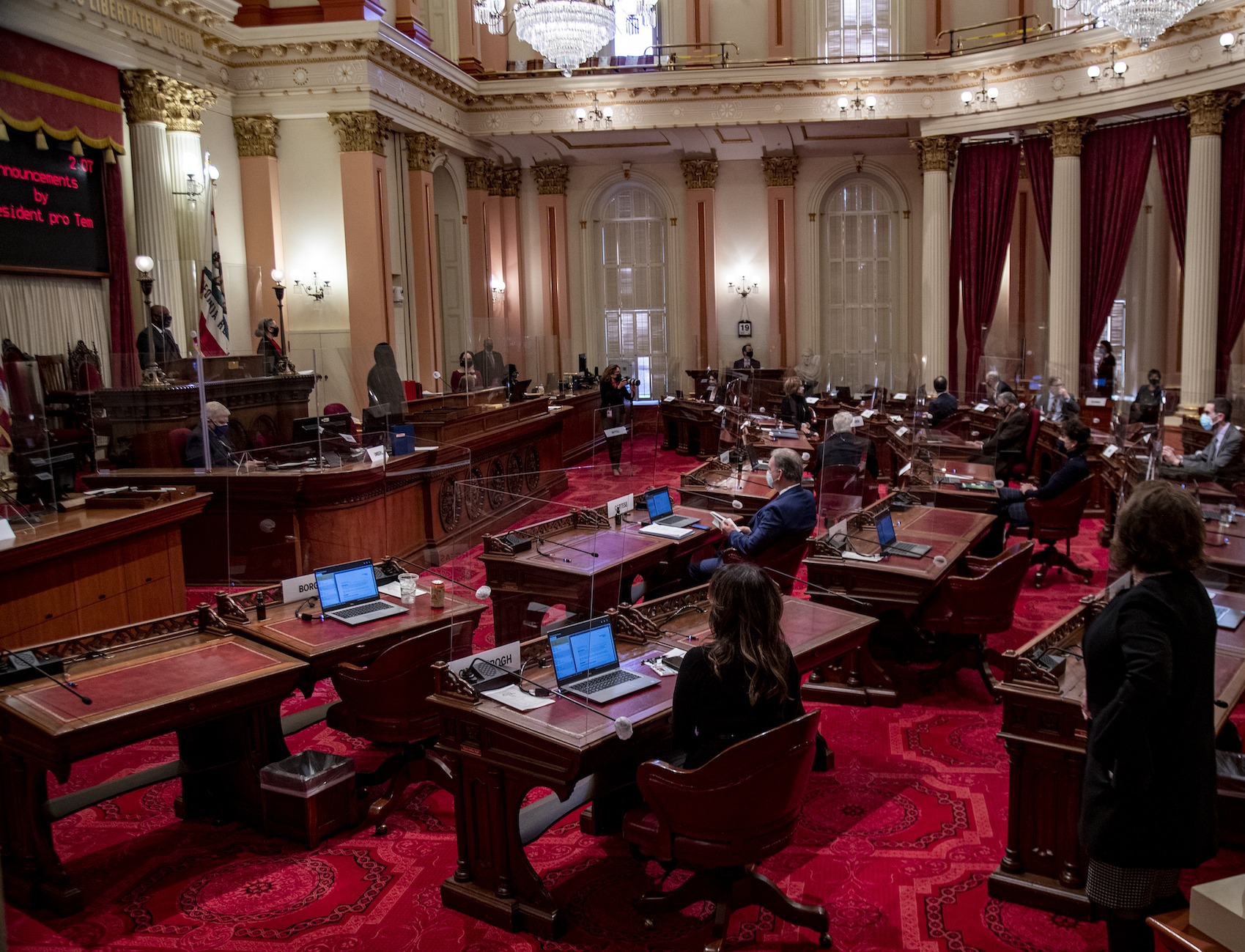States Should Abolish “Felony Murder” Laws
A person who didn’t commit murder shouldn’t be charged with it—but felony murder laws allow prosecutors to do just that. States should repeal these draconian and unjust laws.

The Point
A person who didn’t commit murder shouldn’t be charged with it—but felony murder laws allow prosecutors to do just that. States should repeal these draconian and unjust laws.
State legislatures should repeal their felony murder laws:
- State legislatures, by passing laws, create a state’s crimes and resulting punishments. Felony murder laws have given prosecutors the ability to charge people with murder if a death occurs during the commission of a felony—even if the death was not planned, anticipated, or a result of their direct actions.
- States should repeal these laws. Prosecutors have used them to seek absurd and unjust convictions, like that of Anissa Jordan, whose case was profiled by Lara Bazelon in The Atlantic. Jordan was convicted and sentenced to 27 years to life in prison under California’s felony murder law. She was not even with the shooter at the time he killed the victim, but prosecutors brought murder charges against Jordan anyway because of her participation in an earlier robbery with him.
- States should make repeal retroactive because no one should have to serve out a sentence that a new law prohibits. When California scaled back its felony murder laws, it provided the opportunity for people like Anissa Jordan to seek resentencing. A judge resentenced Jordan to five years in prison for the robbery she did participate in, which meant she could be immediately released from prison.
Felony murder is a misuse of prosecutorial discretion, not a tool of justice:
- Felony murder charges are often used by prosecutors as a bargaining chip during the plea process. A murder conviction carries a much harsher punishment than less serious crimes, giving prosecutors a powerful tool to coerce a guilty plea from the person facing the charge.
- Racism pervades the enforcement of felony murder laws. For example, a recent study out of Duke Law School’s Center for Firearms Law found that in Cook County, Illinois, 81.3% of people sentenced under the felony murder rule are Black. In discussing California’s felony murder rule with The Appeal Live, State Senator Dave Cortese noted, “If you really want a justice movement, particularly a racial justice movement, then we need to start dismantling racist laws that are on the books right now.”
- Felony murder laws are not a deterrent. People are not deterred by consequences they don’t know exist, and they can’t be deterred from doing something they didn’t intend to do.
- More and more states are recognizing the cruelty of felony murder laws. California, Illinois, Massachusetts, and Michigan have all reformed their felony murder laws, and several other states have seen movement to change theirs.
Dive Deeper
- Felony Murder, Explained. Shobha L. Mahadev and Steven Drizin explain how the felony murder rule is a draconian doctrine that serves no value for most people in our society, as it is not designed to address the true acts or intentions of an accused person.
- The Fight to Reform California’s Felony Murder Law. State Senator Dave Cortese and Joanne Scheer of Felony Murder Elimination Project tell The Appeal Live about efforts to change one of the state’s harshest laws.
- Justice in America Episode 17: Killers Who Don’t Kill. Josie Duffy Rice and Clint Smith unpack the felony murder doctrine with Marlon Peterson, an advocate, writer, and host of the podcast DEcarcerated.

